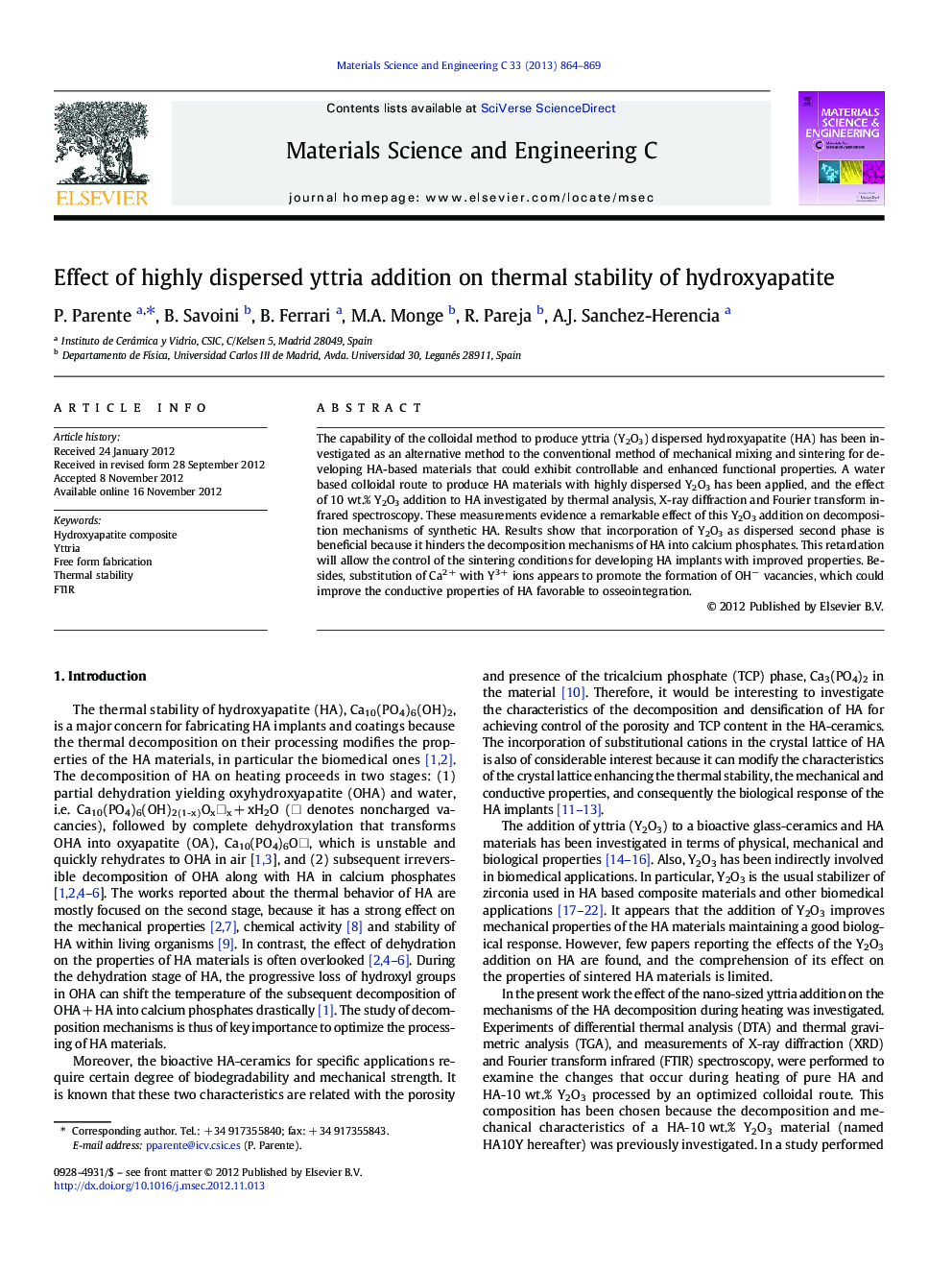| Article ID | Journal | Published Year | Pages | File Type |
|---|---|---|---|---|
| 1428893 | Materials Science and Engineering: C | 2013 | 6 Pages |
The capability of the colloidal method to produce yttria (Y2O3) dispersed hydroxyapatite (HA) has been investigated as an alternative method to the conventional method of mechanical mixing and sintering for developing HA-based materials that could exhibit controllable and enhanced functional properties. A water based colloidal route to produce HA materials with highly dispersed Y2O3 has been applied, and the effect of 10 wt.% Y2O3 addition to HA investigated by thermal analysis, X-ray diffraction and Fourier transform infrared spectroscopy. These measurements evidence a remarkable effect of this Y2O3 addition on decomposition mechanisms of synthetic HA. Results show that incorporation of Y2O3 as dispersed second phase is beneficial because it hinders the decomposition mechanisms of HA into calcium phosphates. This retardation will allow the control of the sintering conditions for developing HA implants with improved properties. Besides, substitution of Ca2 + with Y3 + ions appears to promote the formation of OH− vacancies, which could improve the conductive properties of HA favorable to osseointegration.
► We reveal the influence of Y2O3 on thermal stability of hydroxyapatite. ► Incorporation of Y2O3 delays decomposition of hydroxyapatite to calcium phosphates. ► Addition of Y2O3 enables sintering conditions more favorable to the densification.
